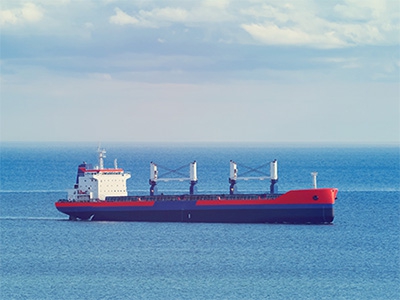The need for shipping alliances to reach out to customers
The Global Shippers Forum (GSF) has called for a manageable but rigorous set of monitoring KPIs that can provide the required level of confidence to customers that ocean shipping alliances can deliver tangible benefits in terms of reduced costs, competitive ocean rates and improved services for shippers.
Speaking at the Transport Week Conference’ in Gdansk, Poland, Chris Welsh – GSF Secretary General – outlined the need for shipping alliances to reach out to customers and start showing demonstrable improvements in service quality and innovative solutions for shippers. A necessary first step is to sort out the current lack of reliability and predictability of their joint operations which is adversely affecting shippers’ maritime and logistics supply chains.
Chris Welsh said: “Shipping alliances need to take responsibility for monitoring, measuring and benchmarking their performance on key trade routes to demonstrate enhanced alliance performance, and make that information transparent to regulators and their customers as evidence of their commitment to showing the pro-competition benefits of improved alliance services.“
During his presentation entitled Maritime Alliances – A Customer’s Perspective’ Welsh stated that the first thing the alliances could do is sort out the reliability and predictability of their joint operations.
Mr Welsh added: “Such confidence building measures are necessary in view of the concentrated market power of the four main alliances covering the world’s main trade lanes and smaller niche and regional liner markets which are directly or indirectly impacted by the alliances. That confidence and trust will be withheld so long as alliance members continue to discuss, fix or agree rates or rate guidelines in conference or discussion agreements, such as the Transpacific and Inter-Asia discussion agreements.“
The GSF said the new alliance agreements represent a new breed of enhanced co-operation agreements in the liner shipping sector that go well beyond traditional consortia or vessel sharing agreements. While alliance members are competing with each other for cargo and market share, they have established mechanisms for sharing strategic information on costs, future capacity investment decisions, trade lane capacity deployment, port and terminal operations, and potentially even prices and surcharges in the context of conference and discussion agreements.
Welsh stated: “The alliance lines leadership should take the ultimate confidence building step of pulling out of all conference and discussion agreements to give assurance that the exchange of sensitive information, including pricing information, on a regular basis within alliances does not lead to abuses of their market power or erect barriers to market entry.
“While we recognise that the world’s main regulators and competition authorities have different regulatory approaches, there is some commonality and convergence in outcomes: namely preventing anti-competitive conduct by ensuring that unreasonable higher shipping costs are not imposed on shippers through information exchanges or manipulation of capacity.
“In that connection, the GSF has welcomed the markers laid down by the US FMC and MOFCOM, the Chinese competition authority, with regard to the P3 agreement. Most notably, the monitoring conditions recommended by GSF and introduced by the FMC to monitor capacity and rates, and in China’s anti-monopoly laws which led them ultimately to reject the P3.
“The GSF therefore calls on the EU, US, and Chinese regulatory and competition authorities to share monitoring data and information to prevent potential competition abuses in the interests of shippers and consumers.“
Chris Welsh concluded:”Shippers understand that we have a shared interest with the liner companies to provide a long-term sustainable framework for investment in liner shipping services and the wider maritime logistics supply chain. Clearly the 2M, G6, CKYHE and Ocean Three leaderships believe that mega-alliances are the answer to a sustainable future for the liner shipping industry. With that, let us agree a workable and rigorous set of monitoring KPIs that can provide the required level of confidence to customers that alliances will not only deliver service and cost improvements but give reassurance to shippers that they can confidently invest in their maritime and logistics supply chains. Our door is firmly open to contribute to such confidence building measures.“
Source: GSF





























































